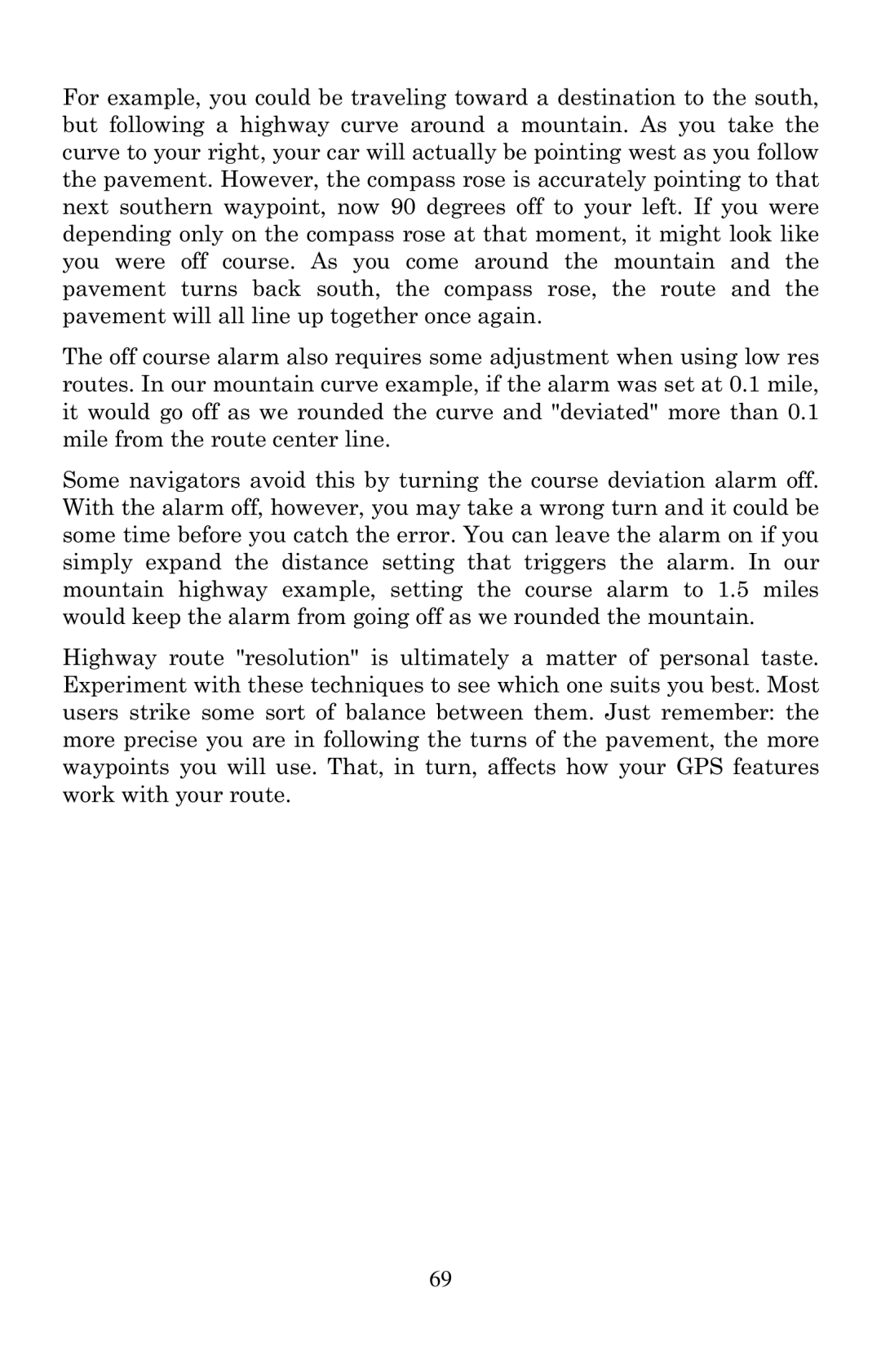For example, you could be traveling toward a destination to the south, but following a highway curve around a mountain. As you take the curve to your right, your car will actually be pointing west as you follow the pavement. However, the compass rose is accurately pointing to that next southern waypoint, now 90 degrees off to your left. If you were depending only on the compass rose at that moment, it might look like you were off course. As you come around the mountain and the pavement turns back south, the compass rose, the route and the pavement will all line up together once again.
The off course alarm also requires some adjustment when using low res routes. In our mountain curve example, if the alarm was set at 0.1 mile, it would go off as we rounded the curve and "deviated" more than 0.1 mile from the route center line.
Some navigators avoid this by turning the course deviation alarm off. With the alarm off, however, you may take a wrong turn and it could be some time before you catch the error. You can leave the alarm on if you simply expand the distance setting that triggers the alarm. In our mountain highway example, setting the course alarm to 1.5 miles would keep the alarm from going off as we rounded the mountain.
Highway route "resolution" is ultimately a matter of personal taste. Experiment with these techniques to see which one suits you best. Most users strike some sort of balance between them. Just remember: the more precise you are in following the turns of the pavement, the more waypoints you will use. That, in turn, affects how your GPS features work with your route.
69
